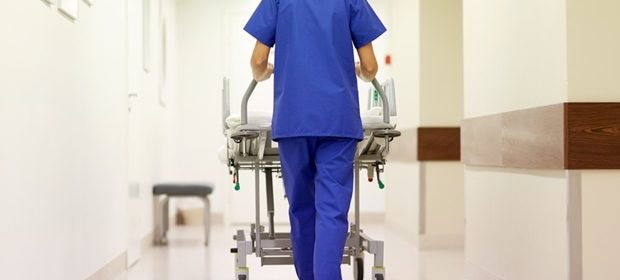Survey finds a steady increase in acceptance of COVID-19 vaccines among healthcare workers

A survey of Geisinger employees conducted over two weeks in December 2020 found a steady increase in intent among healthcare workers to receive the COVID-19 vaccine.
On Dec. 4, 2020, an announcement about anticipated vaccine availability was emailed to all 23,784 Geisinger employees. Recipients were asked to indicate their intention to receive a vaccine when one was available to them and the reasons for any hesitation they might have. More than two-thirds of employees responded to the survey.
Of those who completed the survey before Dec. 10, when an independent FDA advisory committee voted to recommend emergency use authorization (EUA) of the Pfizer-BioNTech COVID-19 vaccine, 53.2% said they would receive a COVID-19 vaccine. By contrast, 80.2% of those who completed the survey after that date said they planned to receive a vaccine. Results of the study were published in JAMA Network Open.
The percentage of employees responding that they intended to receive a vaccine rose steadily after the Dec. 10 vote, coinciding with other widely publicized events, including a vote to recommend EUA for the Moderna vaccine, recommendations for both vaccines by the Centers for Disease Control and Prevention, and news coverage of prominent members of both political parties receiving the vaccine.
"The observed substantial increase in acceptance during the survey period should be interpreted cautiously because of the reduced sample size over time and because survey latecomers may not be representative," the research team wrote. "Still, intervening events may have signaled that receiving a vaccine is safe, normative, historic, and an indication of (healthcare workers') important role in the pandemic response."
Overall, 55.3% of employees said they intended to receive a vaccine, with 16.3% responding that they would decline and 28.4% saying they were undecided. Of those employees who indicated they would not receive the vaccine or were unsure, the vast majority (90.3%) said they worried about unknown risks of COVID-19 vaccines or felt there was insufficient data. Most employees completed the survey prior to the Dec. 10 EUA vote.
As we near the day when there are enough vaccine doses for everyone who wants one, our attention will need to turn to the problem of vaccine hesitancy. Healthcare workers are important ambassadors of vaccine acceptance for their patients and members of the public. That they appear to be much more accepting themselves of COVID-19 vaccines than several earlier surveys suggested is very good news for public health."
Michelle Meyer, lead author of the study and an assistant professor in Geisinger's Center for Translational Bioethics and Health Care Policy
Geisinger has an exciting research environment with more than 50 full-time research faculty and more than 30 clinician scientists. Areas of expertise include precision health, genomics, informatics, data science, implementation science, outcomes research, health services research, bioethics and clinical trials.
Geisinger Health System
Meyer, M.N., et al. (2021) Trends in Health Care Worker Intentions to Receive a COVID-19 Vaccine and Reasons for Hesitancy. JAMA Network Open. doi.org/10.1001/jamanetworkopen.2021.5344.
Posted in: Medical Research News | Healthcare News
Tags: Bioethics, Genomics, Health Care, Healthcare, Hospital, Medicine, Pandemic, Public Health, Research, Vaccine
Source: Read Full Article